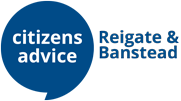Work injury. Benefit mix-up. Problem debt.
And risk of homelessness
Lockdown made things worse for our middle-aged disabled client. Single and without dependants, he was self-isolating and trying to juggle debts and living expenses. He wasn’t coping and decided to ask for help.
His situation wasn’t really of his own making.
It began 15 years ago. In a steady job, he suffered a serious back injury and has been unable to work since. He is permanently on crutches and has also developed diabetes. There is a small work pension but his main income is benefits, mainly Employment Support and Disability Living allowance.
Regrettably, benefits were first overpaid, then suspended. With unstable income for nearly a year he ended up with a series of priority and non-priority debts. Most serious were arrears on payments connected with his leasehold flat. If he failed to sort this out, he was at risk of losing his home.
How we helped.
First, our adviser arranged for the client to receive food vouchers; his problems had left him with insufficient income to buy food. Then came sorting out priority debts and drawing up a financial statement for use with his main creditor. He has now agreed payment terms covering the debt and ongoing payments.
Next, we checked he was claiming all the benefits he was entitled to. Our adviser established that his pension should not count as income for benefit assessment because he receives contribution-based Employment Support Allowance and is in the Support Group.
On our advice, he arranged for his benefits to be paid into a separate bank account. In due course, we will help with managing non-priority debts and deciding if he should ask to move from Disability Living Allowance to Personal Independence Payment before required to do so.
See our full online advice: Debts and money and Sick or disabled people and carers

